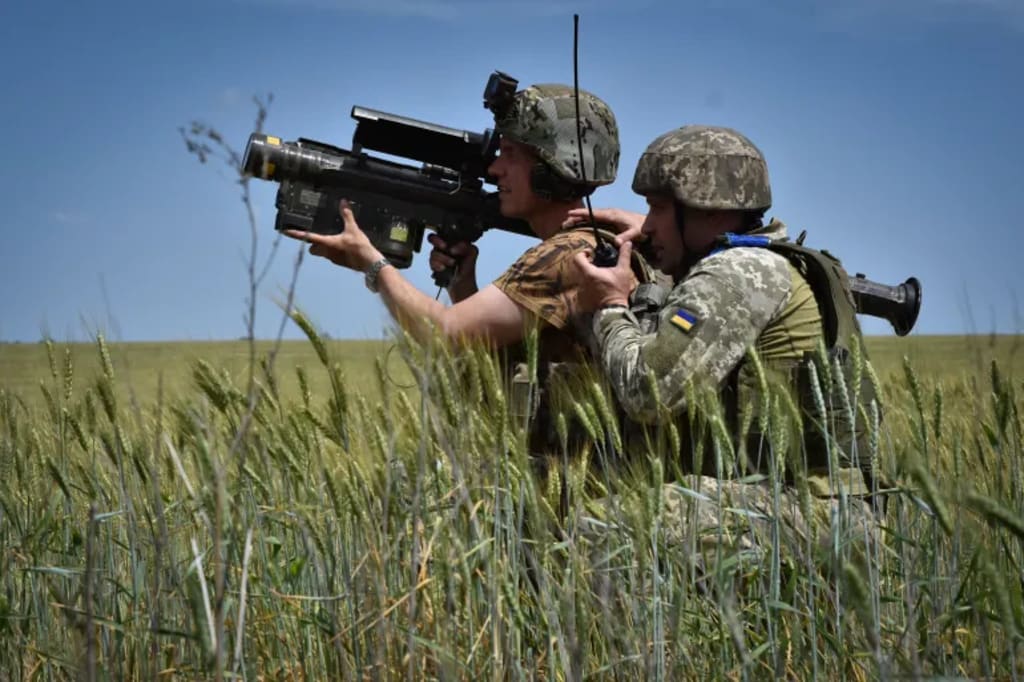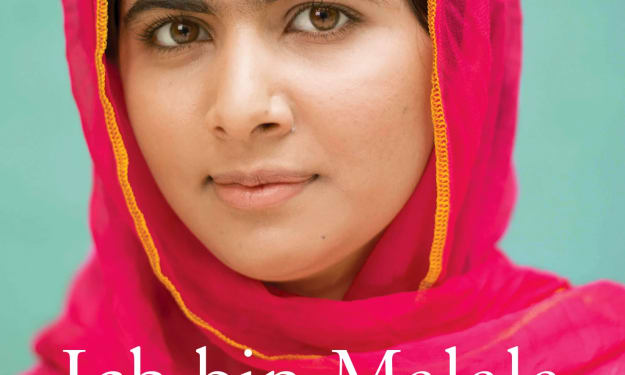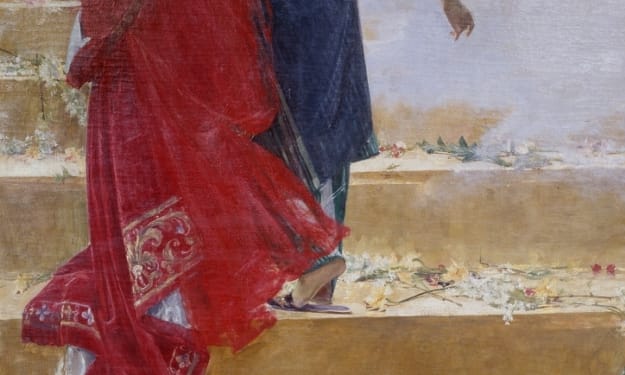Russia-Ukraine Conflict: A Contemporary Analysis from Western and Eastern Perspectives
by David Pieringer

Russia-Ukraine Conflict: A Contemporary Analysis from Western and Eastern Perspectives
Introduction
The ongoing conflict between Russia and Ukraine has been a focal point of global attention, presenting a complex tapestry of social and political issues. This article aims to explore the conflict from both Western and Eastern perspectives, providing a comprehensive understanding of the geopolitical dynamics at play. The narrative will delve into the historical context, current events, and the divergent viewpoints that shape public opinion in different regions.
Historical Context
The roots of the Russia-Ukraine conflict can be traced back to historical, cultural, and political tensions. Ukraine, once part of the Soviet Union, gained independence in 1991. However, the deep-seated connections between Russia and Ukraine, including shared history and cultural ties, have perpetuated a complex relationship.
In 2014, the annexation of Crimea by Russia marked a significant escalation. This move was widely condemned by the international community, leading to sanctions against Russia and a deterioration in relations between Russia and Western countries. The annexation was followed by the outbreak of conflict in Eastern Ukraine, where Russian-backed separatists declared independence in the Donetsk and Luhansk regions.
The Western Perspective
From a Western viewpoint, the conflict is often seen through the lens of sovereignty, democracy, and international law. The annexation of Crimea and the support for separatist movements in Eastern Ukraine are viewed as blatant violations of Ukraine's territorial integrity and sovereignty. Western media and governments emphasize the importance of upholding international norms and protecting the democratic aspirations of the Ukrainian people.
Human Rights and Sovereignty
Western narratives frequently highlight human rights abuses and the plight of civilians caught in the conflict. Reports from organizations such as Human Rights Watch and Amnesty International document violations by both Russian-backed forces and Ukrainian military, with a particular focus on the suffering of local populations. The West argues that Russia's actions undermine the principles of national sovereignty and self-determination, which are cornerstones of international law.
Geopolitical Considerations
Geopolitically, the West perceives Russia's actions as part of a broader strategy to expand its influence in the post-Soviet space. NATO and the European Union see the conflict as a challenge to the stability of Europe and a threat to the security of neighboring countries. Consequently, NATO has increased its presence in Eastern Europe, and the EU has imposed a series of economic sanctions aimed at pressuring Russia to comply with international norms.
Media Representation
Western media often portray the conflict in stark terms, focusing on Russian aggression and the heroism of Ukrainian resistance. This narrative is reinforced by frequent coverage of Ukrainian President Volodymyr Zelenskyy's appeals for international support and the resilience of Ukrainian soldiers and civilians.
The Eastern Perspective
In contrast, the Eastern perspective, particularly from within Russia and among its allies, presents a different narrative. This viewpoint emphasizes historical ties, regional stability, and the perceived encroachment of Western powers into Russia's sphere of influence.
Historical and Cultural Ties
Many in Russia view Ukraine as an integral part of the Russian cultural and historical landscape. The concept of "Russkiy Mir" (Russian World) underscores the shared heritage and linguistic ties between the two nations. From this perspective, the events of 2014 and beyond are seen not as aggression but as efforts to protect Russian-speaking populations and preserve cultural connections.
Security Concerns
Russia's actions are often justified by security concerns. The eastward expansion of NATO is perceived as a direct threat to Russian national security. The presence of NATO forces near Russian borders is viewed with suspicion and hostility, reinforcing the narrative that the West is attempting to encircle and weaken Russia.
Media Representation
Russian media portray the conflict in Ukraine as a civil war fueled by Western interference. State-controlled outlets emphasize the role of Western countries in supporting what they describe as a coup in Kyiv in 2014, which led to the ousting of pro-Russian President Viktor Yanukovych. Russian media often depict Ukrainian nationalists and government forces as aggressors, while portraying separatists in Eastern Ukraine as defenders of their homeland.
Impact on Civilians
Regardless of the perspective, the human cost of the conflict is undeniable. The war has resulted in thousands of deaths, displacement of populations, and widespread destruction. Both Western and Eastern narratives acknowledge the humanitarian crisis, though they often attribute blame to the opposing side.
Displacement and Refugees
The conflict has created a significant refugee crisis, with millions of Ukrainians displaced internally and across borders. Countries in the EU, particularly Poland, have received a large influx of refugees, straining resources and prompting calls for international aid.
Economic Hardships
The economic impact of the conflict is profound. Sanctions against Russia have led to economic difficulties, affecting not only the Russian economy but also global markets. Meanwhile, Ukraine's economy has suffered due to ongoing instability and destruction of infrastructure.
Diplomatic Efforts and Challenges
Efforts to resolve the conflict through diplomacy have been ongoing but fraught with challenges. Various agreements, such as the Minsk accords, have aimed to establish ceasefires and political solutions, yet violations and lack of trust have hindered progress.
Western Diplomatic Efforts
The West, primarily through the EU and the US, has pushed for diplomatic resolutions, emphasizing sanctions as a tool to bring Russia to the negotiating table. Diplomatic efforts also involve supporting Ukraine through economic aid and military assistance, aiming to strengthen Ukraine's position in any negotiations.
Eastern Diplomatic Efforts
Russia, while engaging in diplomatic talks, often accuses the West of not respecting its security concerns and failing to acknowledge the legitimate interests of Russian-speaking populations in Ukraine. Diplomatic efforts from the Russian side stress the need for federalization of Ukraine, granting more autonomy to regions like Donetsk and Luhansk.
The Role of International Organizations
International organizations play a crucial role in mediating the conflict and providing humanitarian assistance. The United Nations, OSCE, and various non-governmental organizations are involved in monitoring ceasefires, delivering aid, and documenting human rights abuses.
UN and OSCE Involvement
The United Nations and the Organization for Security and Co-operation in Europe (OSCE) have been actively involved in monitoring the situation on the ground. Their reports provide crucial data on ceasefire violations, civilian casualties, and humanitarian needs.
Humanitarian Aid
Organizations like the International Red Cross and various UN agencies work tirelessly to deliver aid to affected populations. They face significant challenges due to ongoing hostilities and restrictions imposed by both sides.
Public Opinion and Media Influence
Public opinion on the conflict varies widely between the West and the East, influenced heavily by media representation. In the West, there is broad support for Ukraine and condemnation of Russian actions. In the East, particularly in Russia and its allied states, public opinion is more supportive of Russia’s narrative.
Western Public Opinion
In Western countries, public opinion is shaped by media coverage that often emphasizes Ukrainian suffering and Russian aggression. Polls indicate strong support for economic sanctions against Russia and military aid to Ukraine. Social media campaigns and grassroots movements also play a role in mobilizing public support for Ukraine.
Eastern Public Opinion
In Russia and allied countries, public opinion is molded by state-controlled media that highlights Western hypocrisy and frames the conflict as a struggle against Western encroachment. Polls in Russia show significant support for the government's actions in Ukraine, reflecting the effectiveness of state propaganda.
Conclusion
The Russia-Ukraine conflict is a multifaceted issue with deep historical roots and significant implications for global geopolitics. The Western perspective focuses on upholding international law, supporting Ukrainian sovereignty, and countering Russian aggression. In contrast, the Eastern perspective emphasizes historical ties, regional stability, and security concerns.
Understanding these divergent viewpoints is crucial for any comprehensive analysis of the conflict. As the situation continues to evolve, it remains essential for the international community to seek diplomatic solutions that address the legitimate concerns of all parties involved while prioritizing humanitarian needs and the protection of civilians.
About the Creator
David Pieringer
Welcome to my page! I'm a dedicated writer and student with a passion for both education and sports. Balancing my love for learning with my athletic pursuits, I strive to excel in everything I do.
Enjoyed the story? Support the Creator.
Subscribe for free to receive all their stories in your feed. You could also pledge your support or give them a one-off tip, letting them know you appreciate their work.






Comments
There are no comments for this story
Be the first to respond and start the conversation.